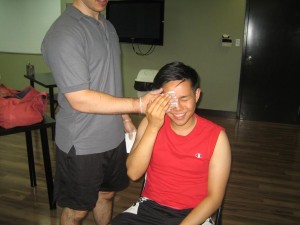Fact Checked
Overview Of A Black Eye
- A black eye occurs when there is bruising to the tissue beneath the skin affecting your eye.
- It’s generally caused by force to the face, such as a blow from a fist, or an accident such as falling.
Steps To Take
- A black eye is not generally severe and you can generally look after it at home if it’s not serious.
- After a couple of days, the inflammation affecting your eye will start decrease and the bruise will turn yellow before finally disappearing.
- Like other types of bruising, a black eye will generally take about a week or maybe even two to heal fully.
Self-care Methods For Treating Bruising

- You can usually help decrease the signs of a black eye.
- Softly place an ice pack to the skin near the eye after the injury. You can also use a packet of frozen vegetables enfolded in a towel.
- The cold will deaden the discomfort and relieve the inflammation. On the first day, you must place the ice pack to your eye for about 15 minutes per hour.
- Drugs, such as ibuprofen or paracetamol, can be used to assist with the pain.
- Don’t use any aspirin (except if your GP instructs you to take it) because it can cause bleeding to become worse. Kids below the age of 16 should never take aspirin.
- Visit your doctor if the discomfort or inflammation is serious or doesn’t disappear, or the affected region feels hot, red or dripping with pus (these might be indications of infection).
Going To The Hospital
Visit your nearest hospital instantly if:
- Both your eyes are black (this denotes a type of injury to the head referred to as a basilar skull fracture)
- You experiencing double vision or no vision at all
- You have other signs of a serious head injury, such as loss of memory, a persistent headache, lethargy, attacks (fits), or vomiting
- You can’t move your eye